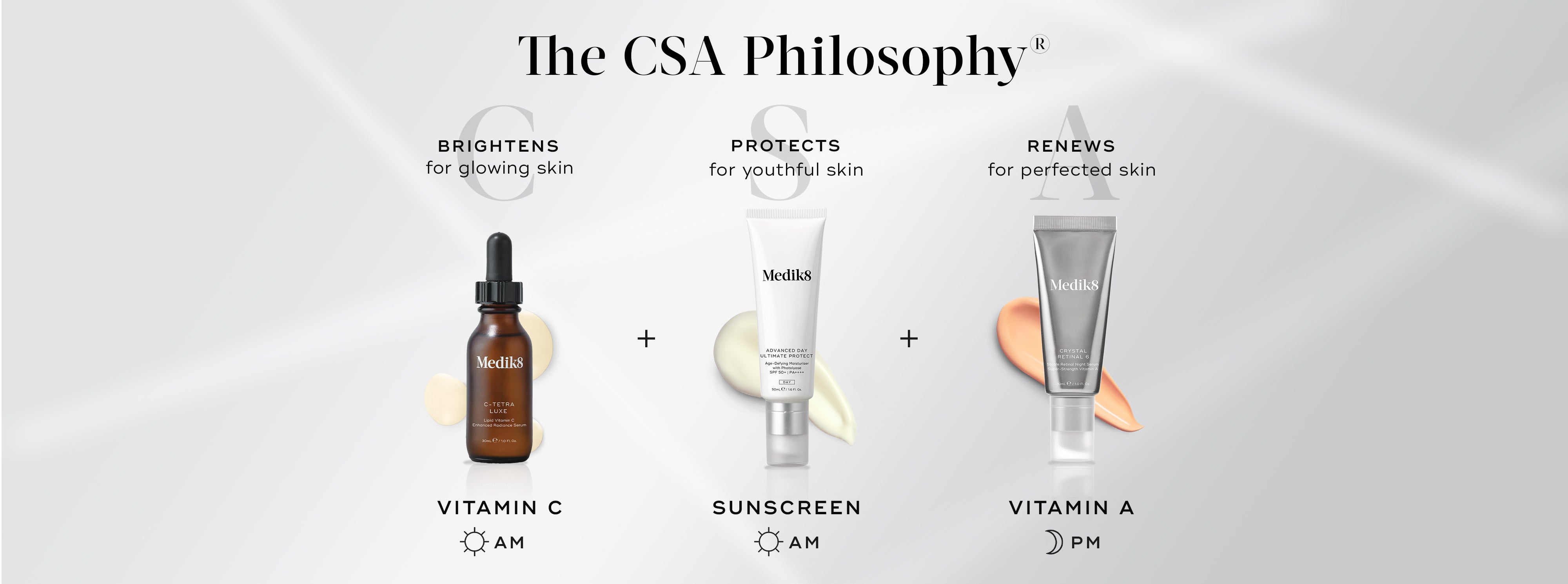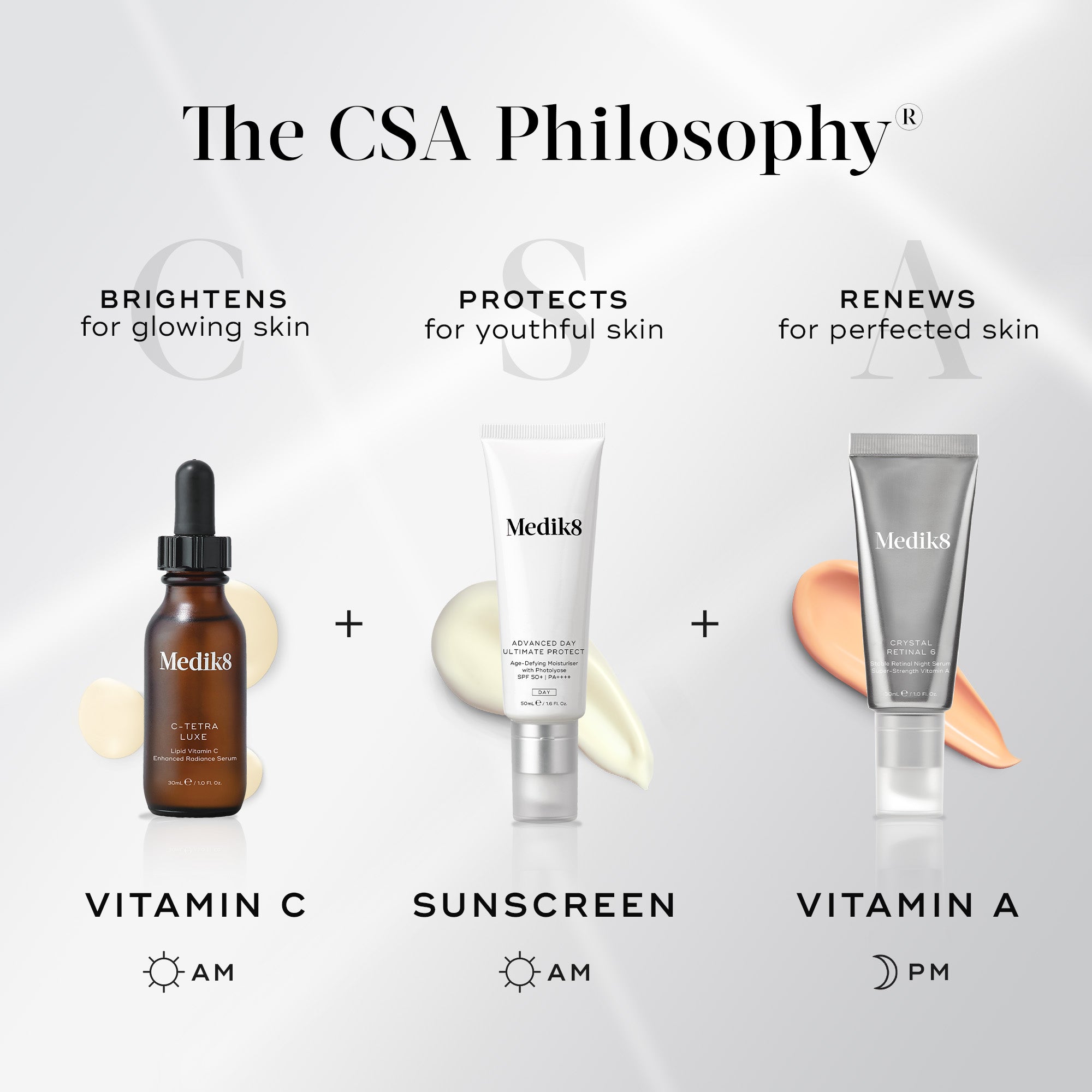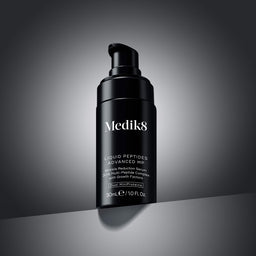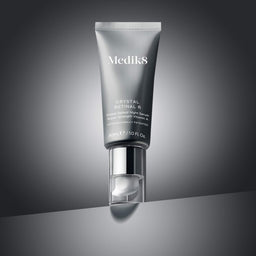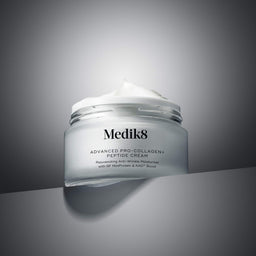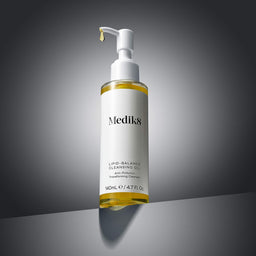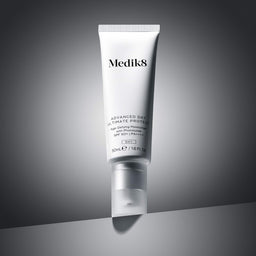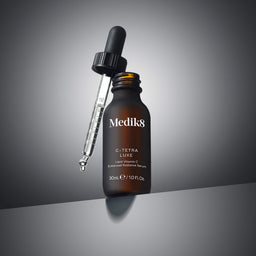Sunscreen Specialists
It’s estimated that 80% of premature skin ageing is caused by the sun,[1] which is why daily sunscreen application is essential for maintaining a healthy, youthful-looking complexion.
Our next-generation sunscreens are expertly formulated to ensure powerful, all-encompassing UV protection that feels lightweight and non-greasy on the skin - perfect for everyday use.
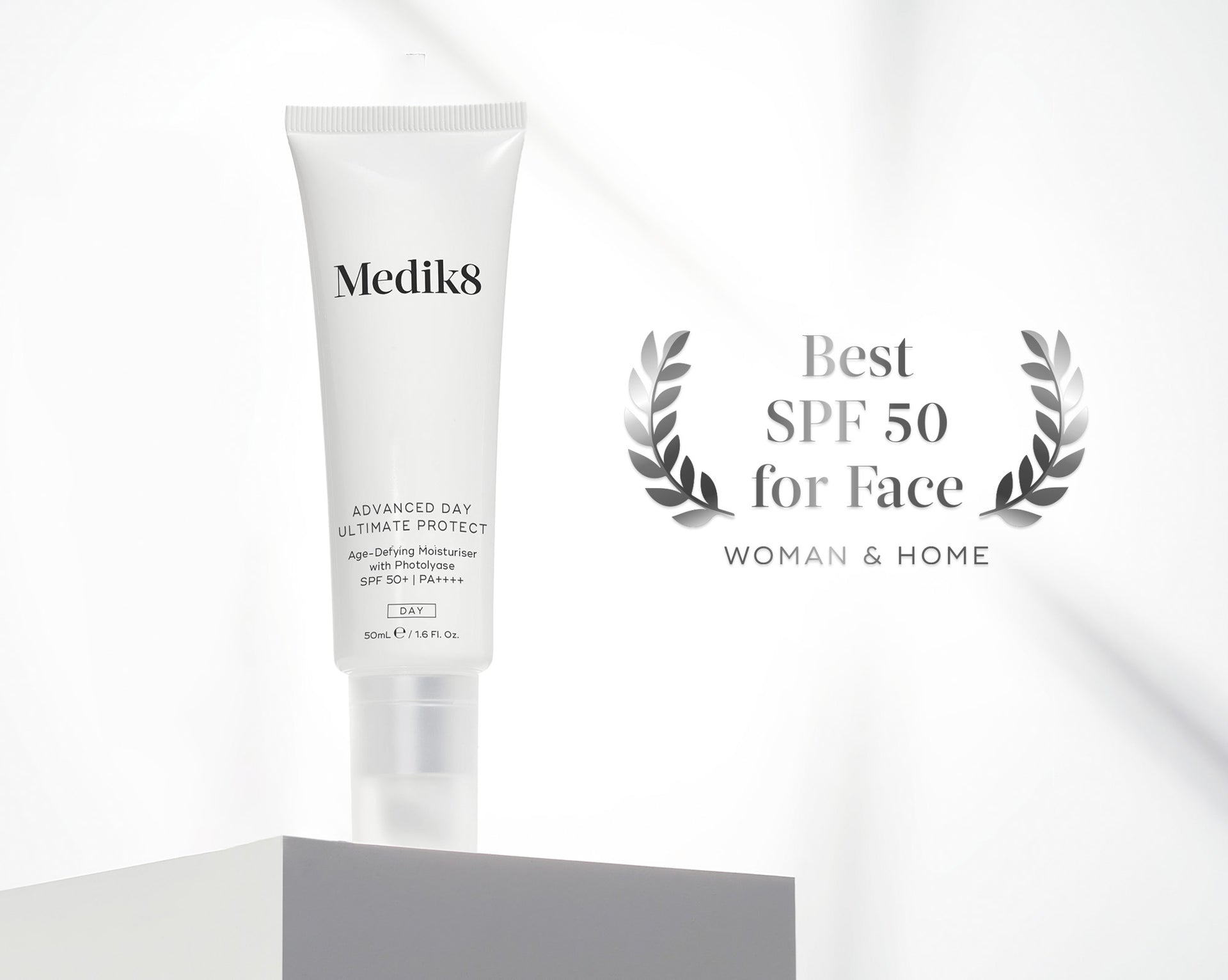
The Effects of Sun Damage
UV rays can easily penetrate clouds and glass, so high protection sunscreen should be a non-negotiable step in every anti-ageing skincare routine, even on cloudy days.
Sunscreen shields skin against premature ageing caused by UVA rays, as well as sunburn caused by UVB rays. Both types of rays can cause tanning, and both have the potential, in the long term, to cause skin cancer.
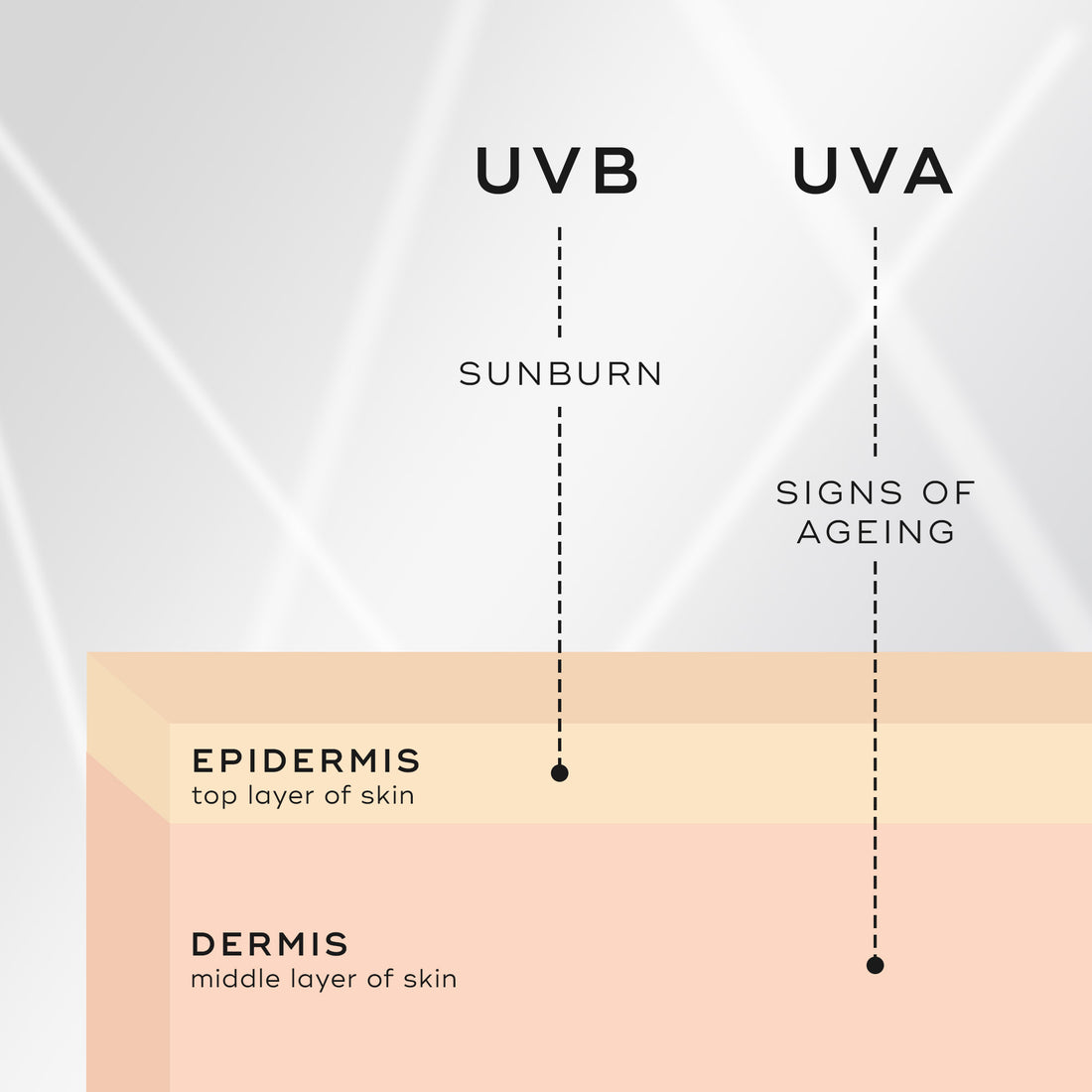
What About SPF Ratings?
An SPF rating corresponds to a sunscreen’s level of protection against UVB rays - the higher the SPF rating, the higher the protection against sunburn and the risk of skin cancer.
However, when choosing a sunscreen, you should also look out for ‘broad spectrum’ formulas, star ratings, and PA rating systems.
Broad spectrum classification: indicates that the UVA protection is at least one-third of the UVB protection
Star-rated system: signals various ratios of UVA to UVB protection
PA rating: measures how long it takes for a tanning effect to occur.
Note: A sunscreen’s PA rating is followed by a certain number of pluses. Much like with SPF, the more pluses, the higher the level of protection. PA++++ (4 pluses) offers extremely high UVA protection and is the maximum rating a sunscreen can achieve.
Opt for a high SPF rating and ‘broad spectrum’ formula wherever you can, as well as the highest star rating (5*) and PA rating possible.
All Medik8 sunscreens deliver high SPF ratings and ‘broad spectrum’ protection, with our Advanced range also meeting the highest star rating (5*) of Ultra UVA protection. Advanced Day Ultimate Protect additionally offers the highest rating of PA++++ protection.
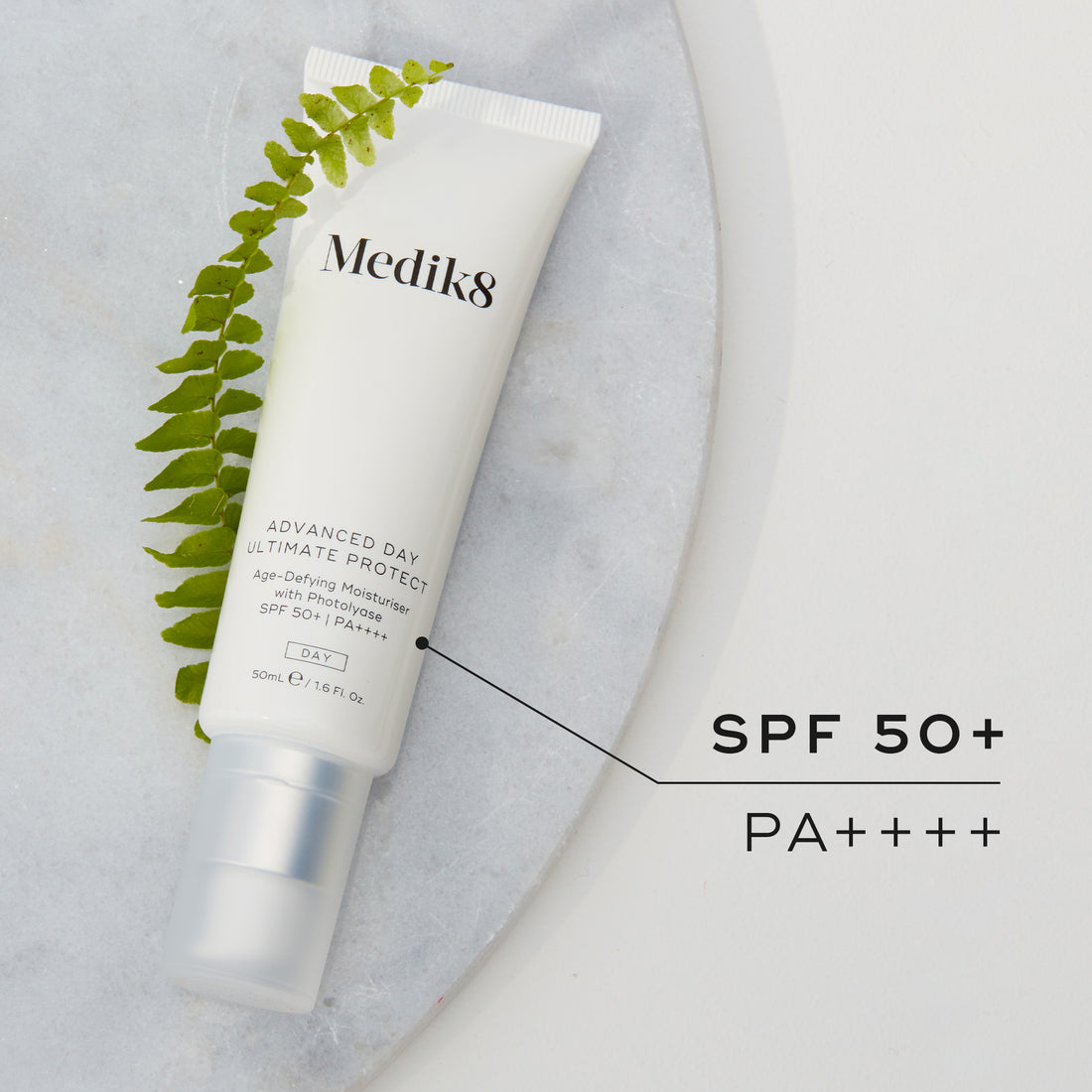
Premium Sunscreens At Medik8
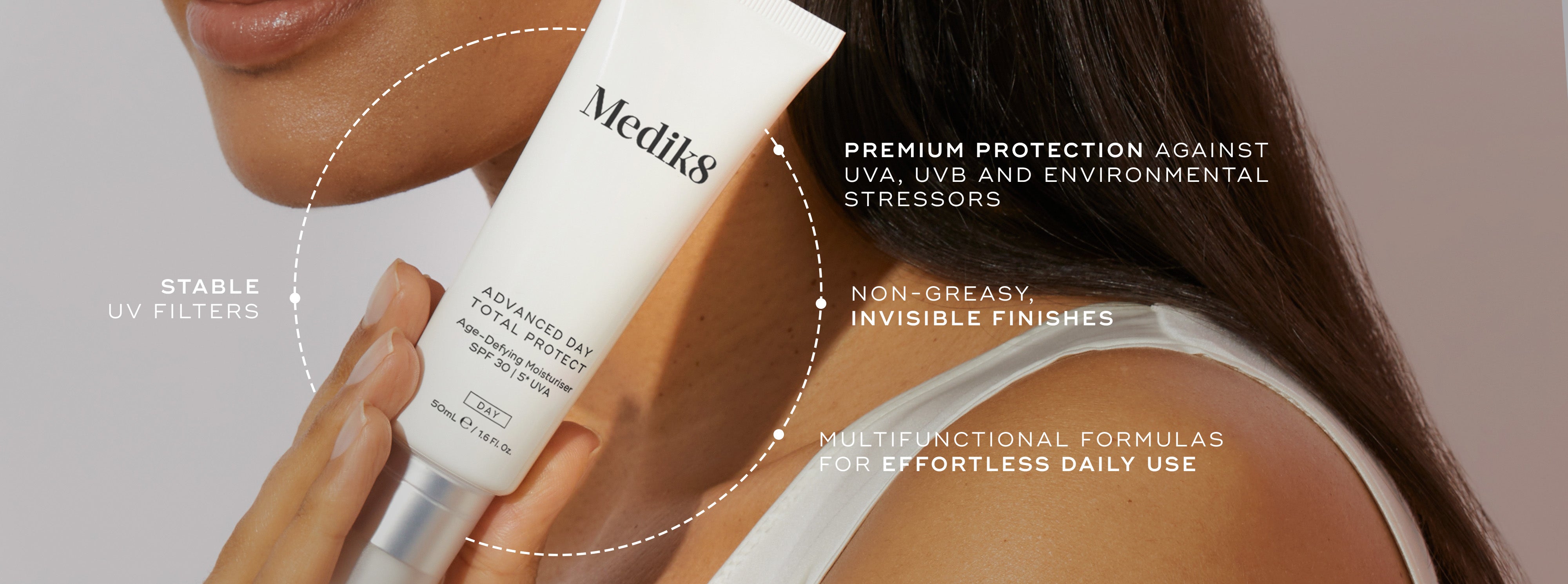
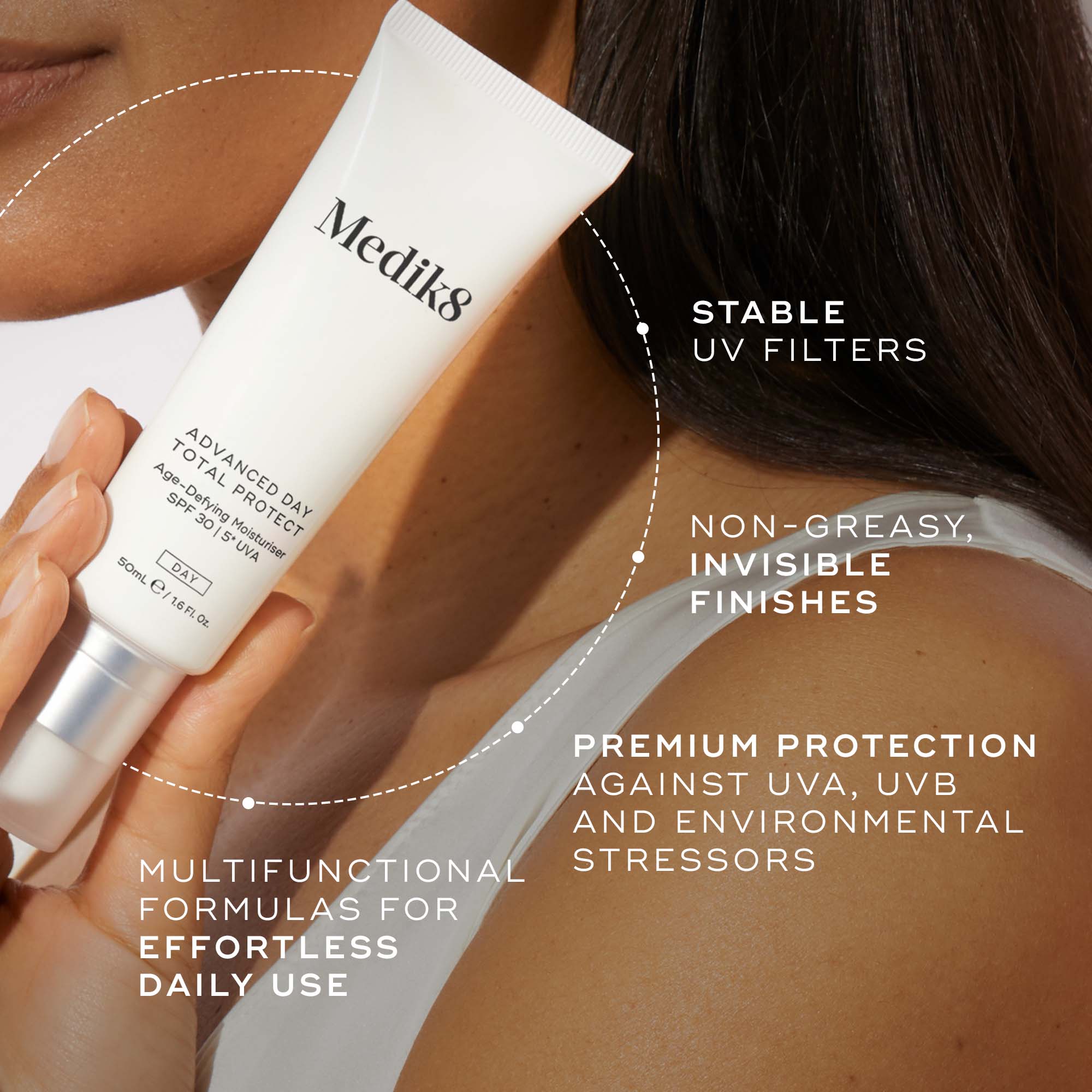
Advanced Day Ultimate Protect
What does it do?
- Delivers our highest level of protection (SPF 50+ PA++++) against UV damage and signs of ageing
- Deeply hydrates the complexion
- Minimises the appearance of dark spots over time
- Gives an invisible, non-greasy finish
Stand-out features
- DNA repair enzymes: to support the skin’s natural repair mechanisms after UV exposure
- 360° environmental shield: to help prevent future signs of premature ageing cause by blue light and pollution
Who’s it for?
- Anyone wanting powerful, all-encompassing protection against UV rays and signs of premature ageing
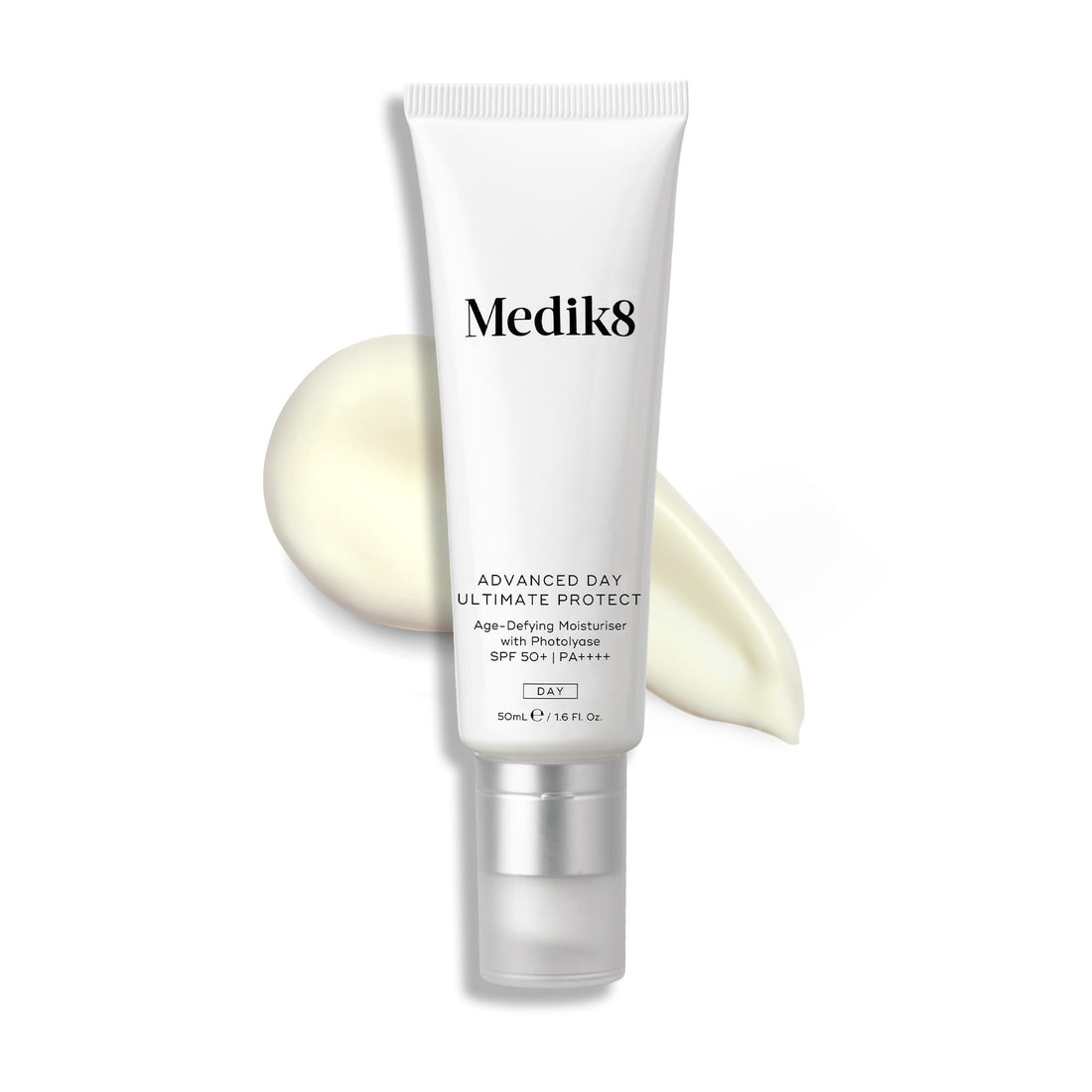
Advanced Day Total Protect
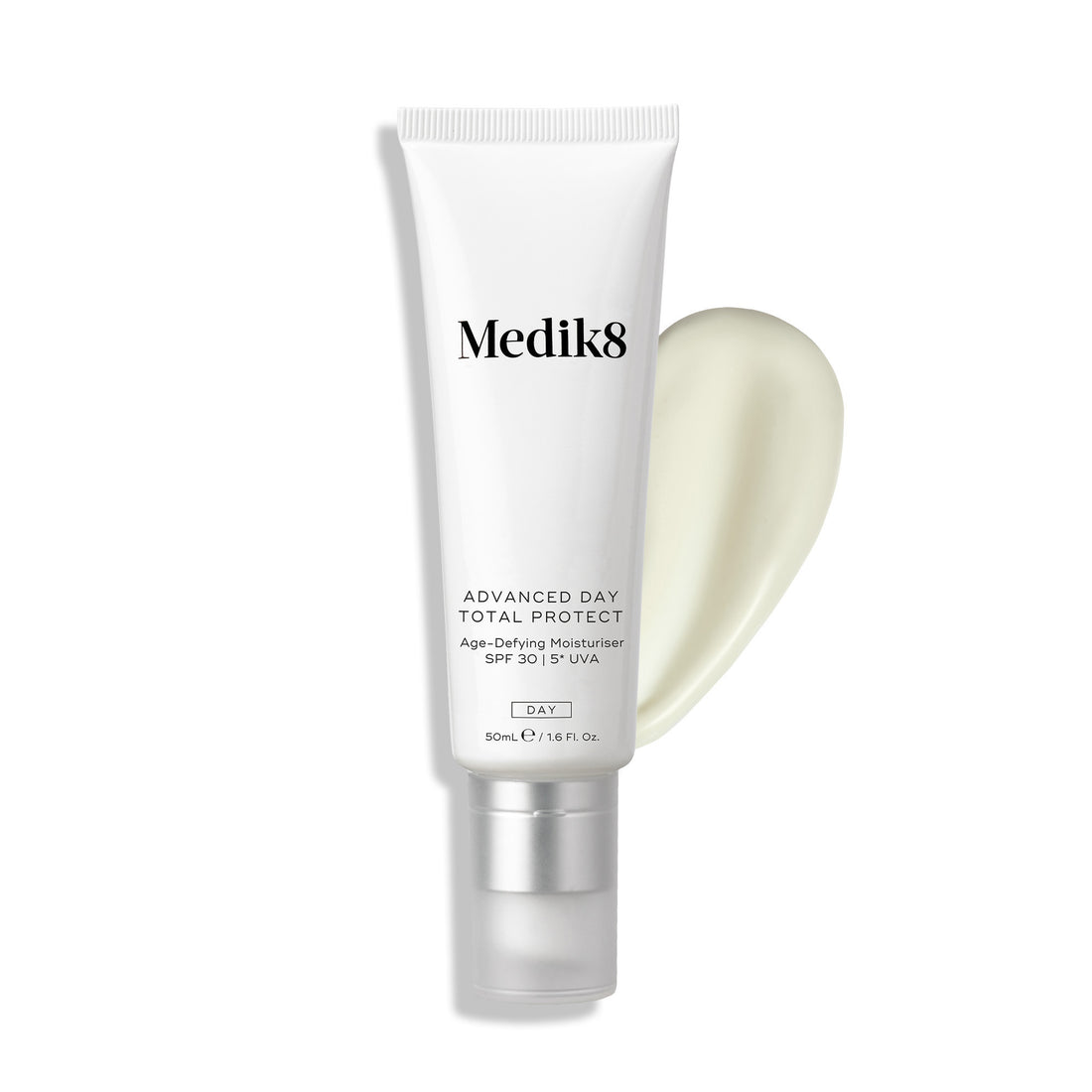
What does it do?
- Provides broad spectrum SPF 30 5* UVA protection against UV damage and signs of ageing
- Hydrates the skin
- Reduces the look of fine lines and wrinkles
Stand-out features
- Lightweight, non-greasy and invisible finish : the perfect smoothing base for makeup
- 60° environmental shield : defends against pollution, infrared, blue light and glycation
Who’s it for?
- Those wanting a lightweight yet effective sunscreen, that sits effortlessly under makeup
Advanced Day Eye Protect
What does it do?
- Delivers SPF 30 5* UVA protection, optimised for the delicate eye area
- Nourishes and hydrates
- Combats visible signs of ageing around the eyes
- Promotes a more youthful-looking eye area
Stand-out features
- Anti-A.G.E technologies: to combat environment-induced signs of ageing
- Caffeine & hesperidin: to help reduce the look of puffiness and dark circles
Fragrance-free formula: to prevent irritation around the delicate eye area
Who’s it for?
Those wanting gentle yet effective UV protection, specifically for the delicate eye area
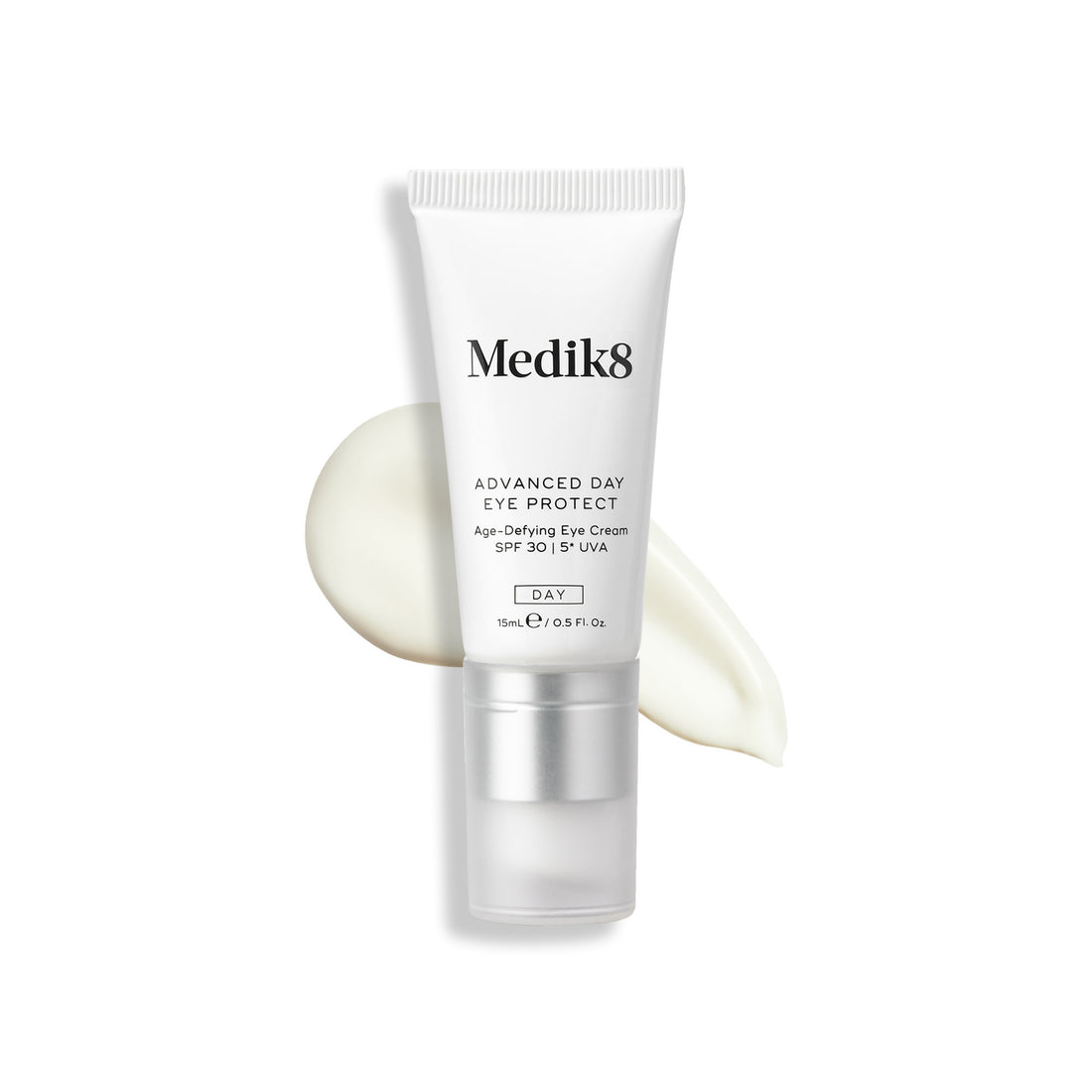
Daily Radiance Vitamin C
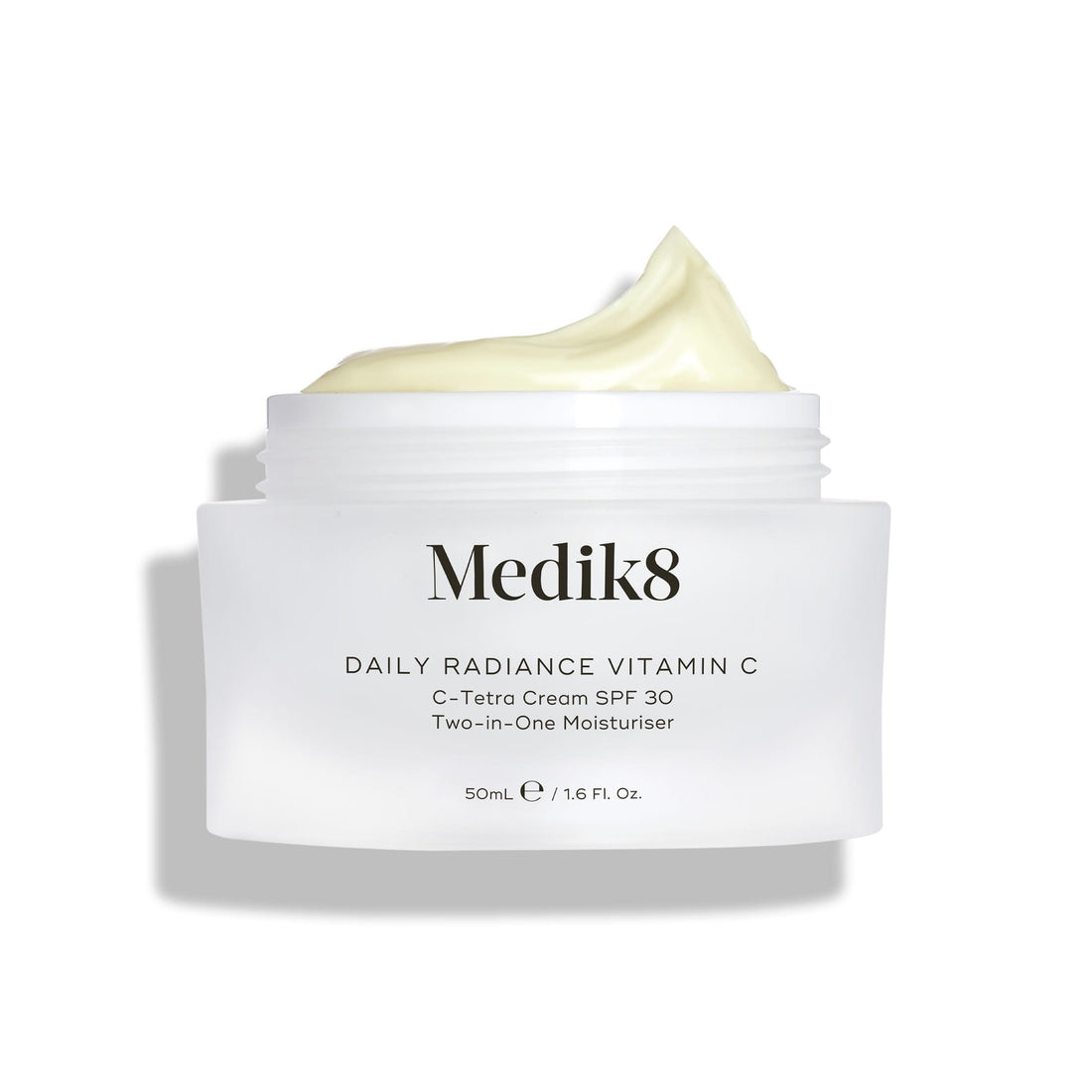
What does it do?
- Provides broad spectrum SPF 30 protection plus vitamin C power
- Prevents and visibly improves signs of premature ageing
- Boosts skin radiance
- Gives a lightweight, non-greasy and cashmere-soft finish
Stand-out features
- Stabilised vitamin C: for effective brightening power and antioxidant protection against environmental stressors
- Hyaluronic acid: Leaves the complexion nourished and visibly supple
Who’s it for?
- Those wanting a concise AM skincare regime
- Those looking for the perfect introduction to Medik8’s CSA Philosophy
Our Top Tips For Sunscreen Application
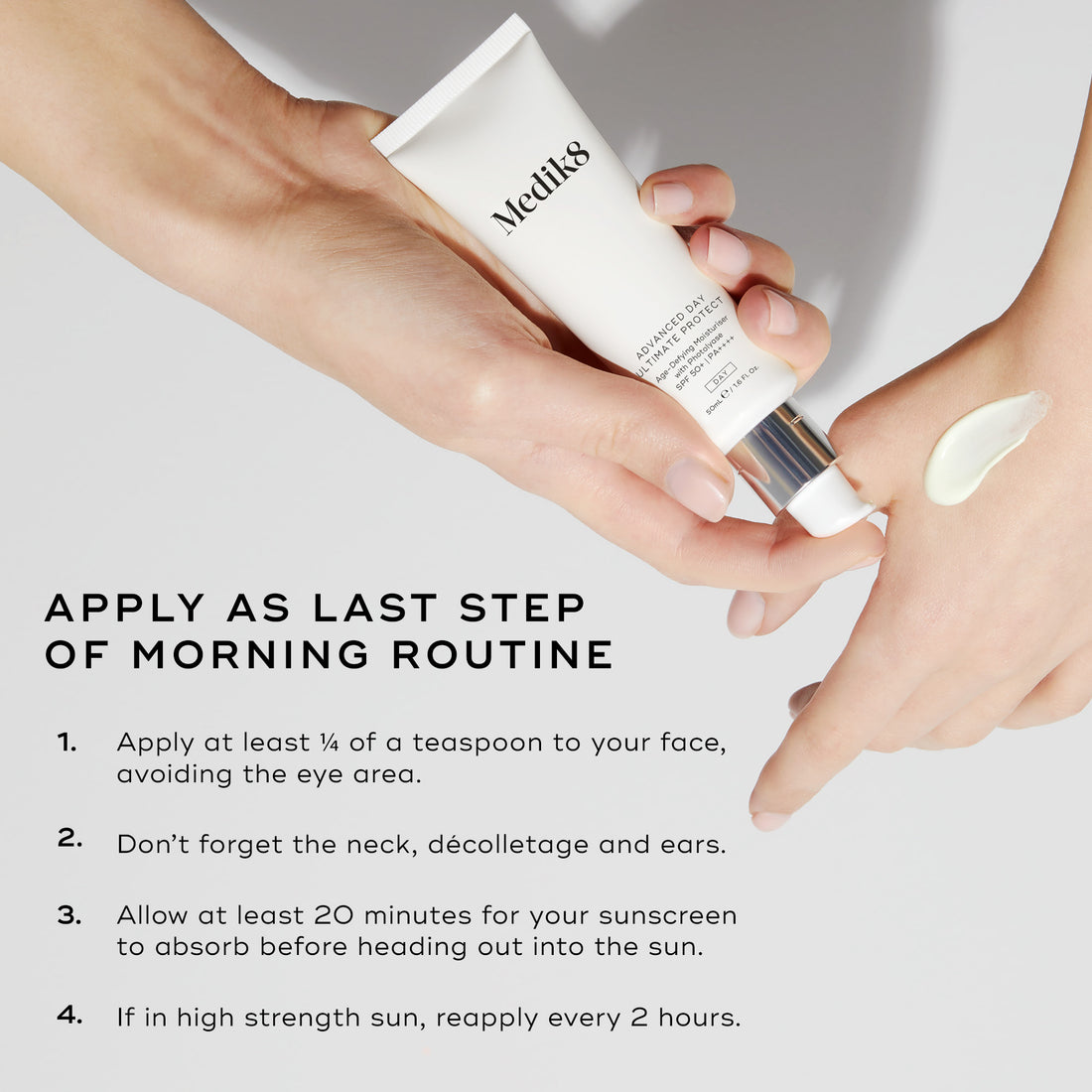
Discover CSA
Enhance the visible youth-preserving benefits of sunscreen by pairing with vitamin C and vitamin A - as per Medik8’s pioneering CSA PhilosophyⓇ which recommends vitamin C plus sunscreen by day, vitamin A by night. Follow this simple, clinically proven approach for glowing, youthful-looking skin.
